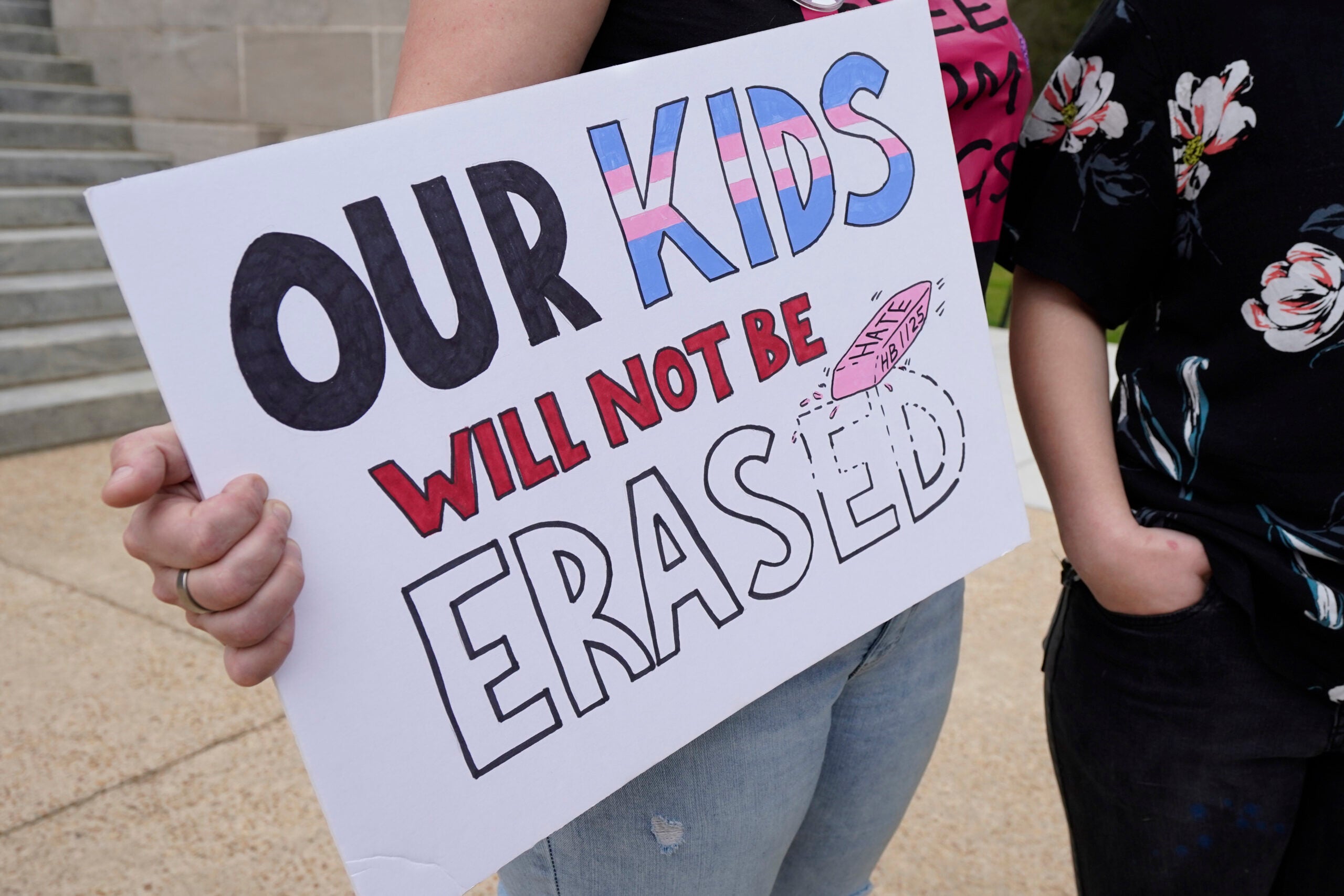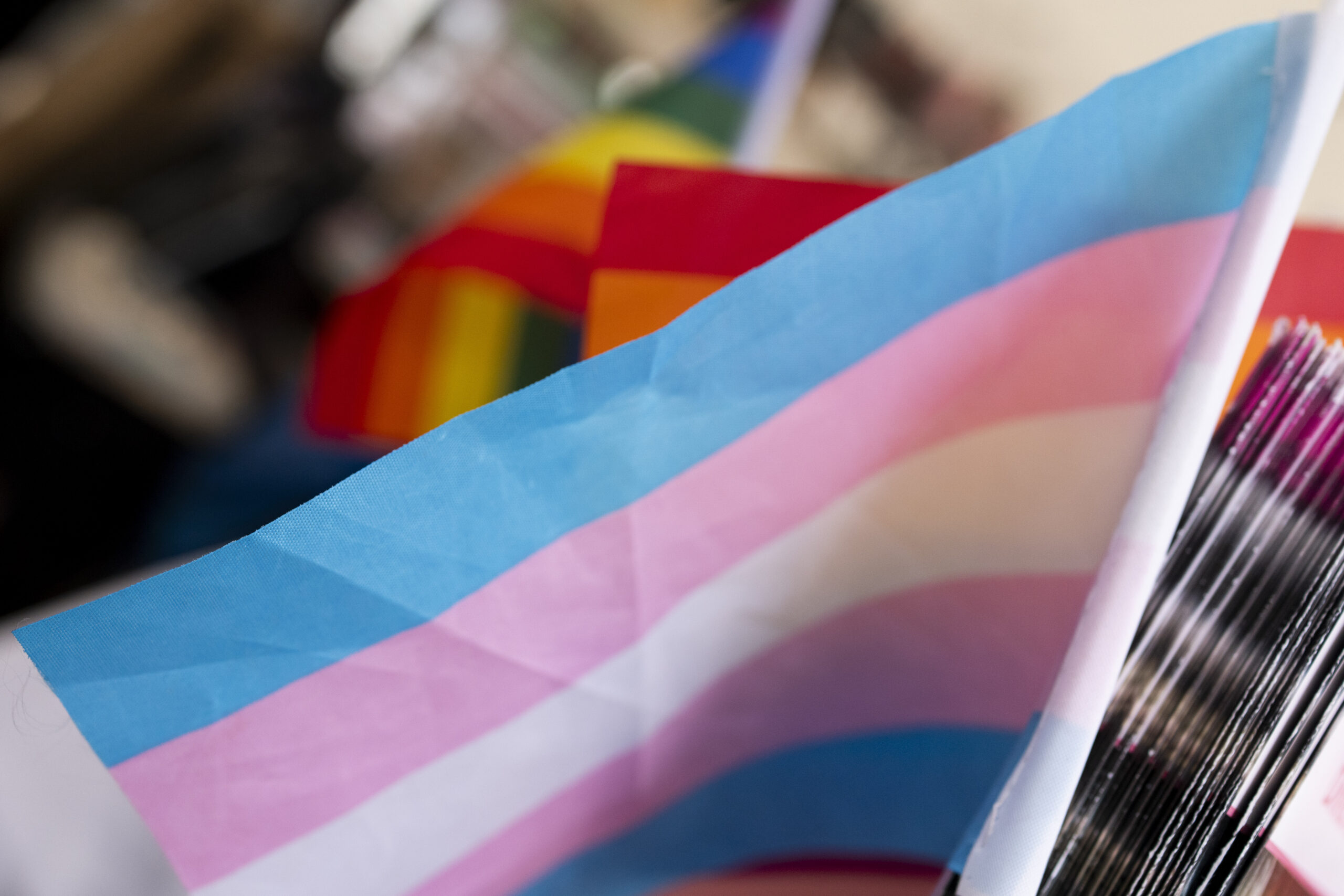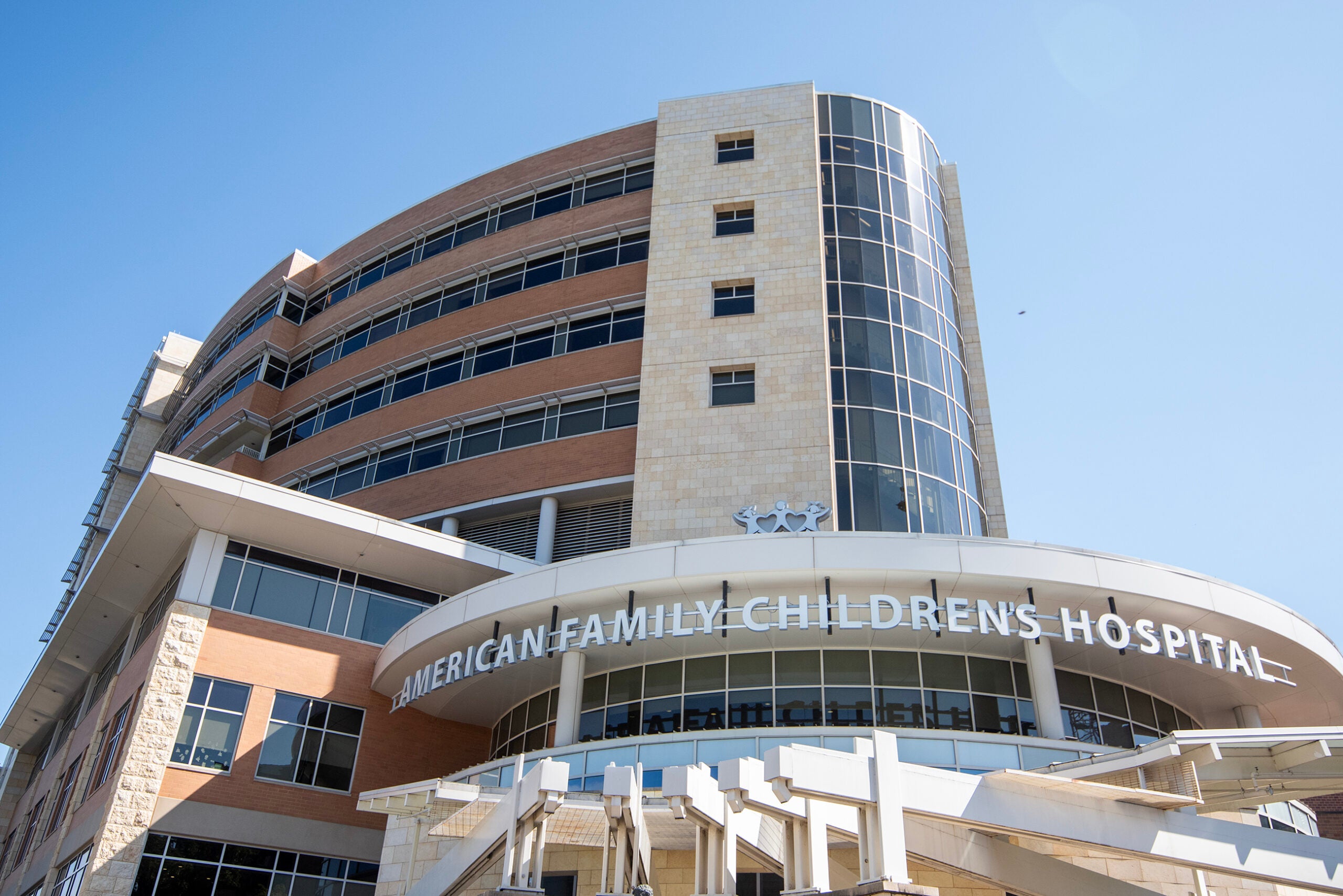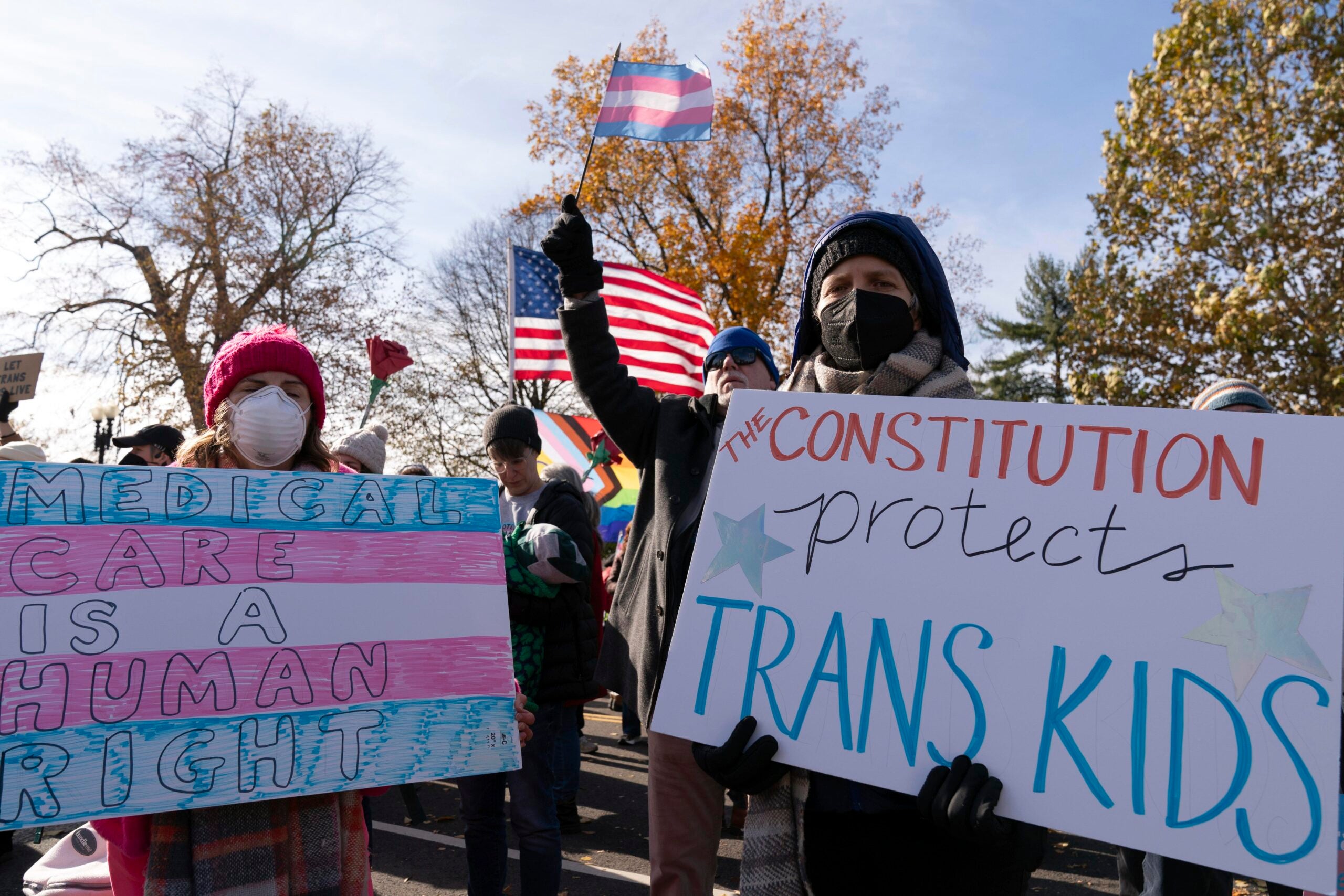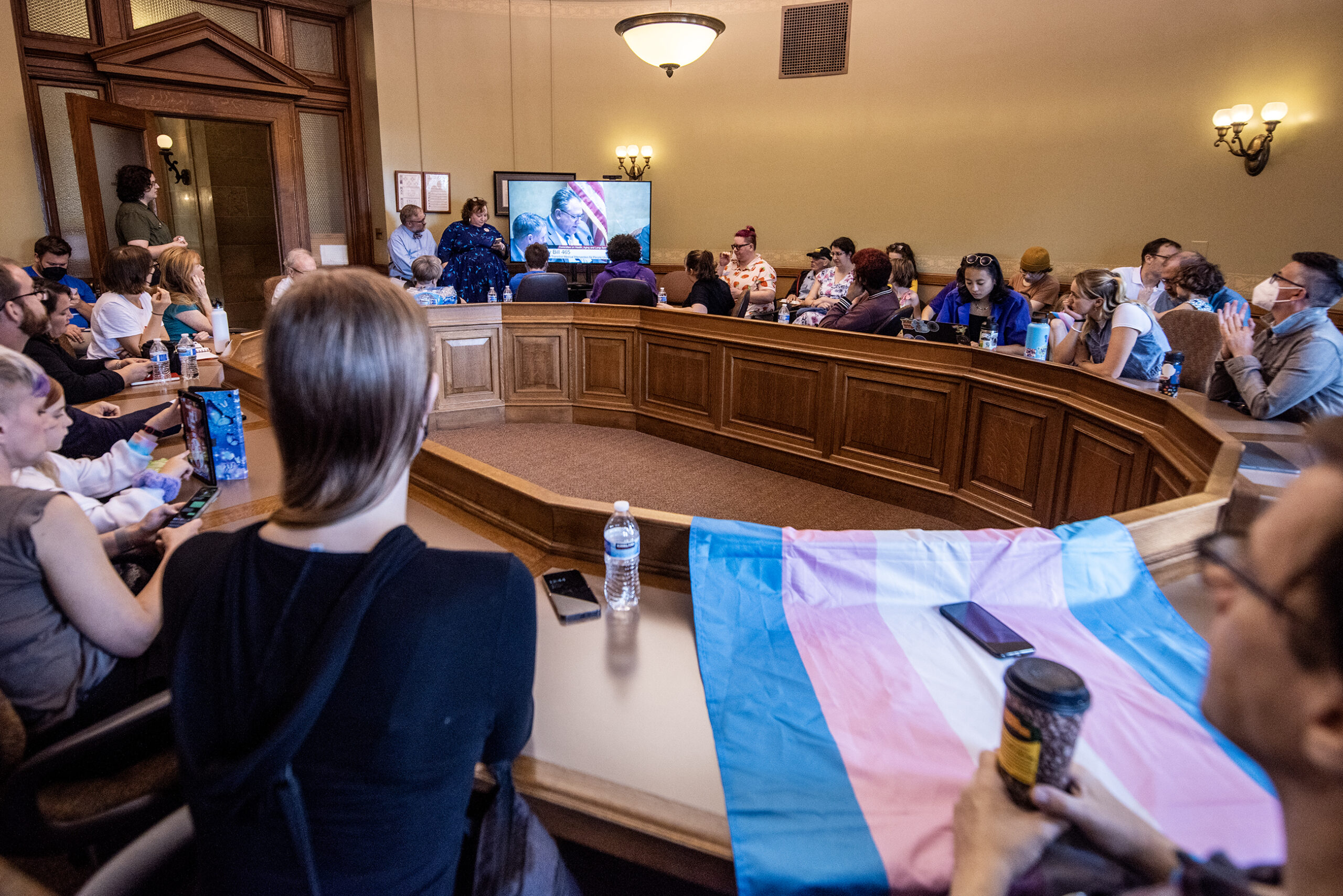The state Assembly on Thursday approved three bills to limit how transgender youth participate on Wisconsin sports teams and restrict transgender minors from accessing certain gender-affirming health care.
The bills were passed along party lines, with all Republicans voting in favor and all Democrats voting against. Gov. Tony Evers has already pledged to immediately veto them should they reach his desk.
Backers of the bills say they are supporting fairness in women’s sports, and want to prevent children from making changes to their developing bodies.
News with a little more humanity
WPR’s “Wisconsin Today” newsletter keeps you connected to the state you love without feeling overwhelmed. No paywall. No agenda. No corporate filter.
“It’s interesting that if you go back in history, the way to treat mental illness 50 to 100 years ago was a lobotomy. And at the time that was settled science,” Assembly Speaker Robin Vos, R-Rochester, told reporters before Thursday’s Assembly session. “I think we are now seeing around the world that other countries have begun to look and say what science said should be done to minors, clearly is wrong.”
Opponents of the bills argued they target transgender children and put those children at risk of poor mental health, including suicidality.
“You can’t sugarcoat bigotry and discrimination under arguments of fairness and equality,” said Rep. Lee Snodgrass, D-Appleton. “No amount of histrionics today on this floor is going to couch that for anything but what it is: A politically motivated attack on a population of children who are already statistically vulnerable to harm.”
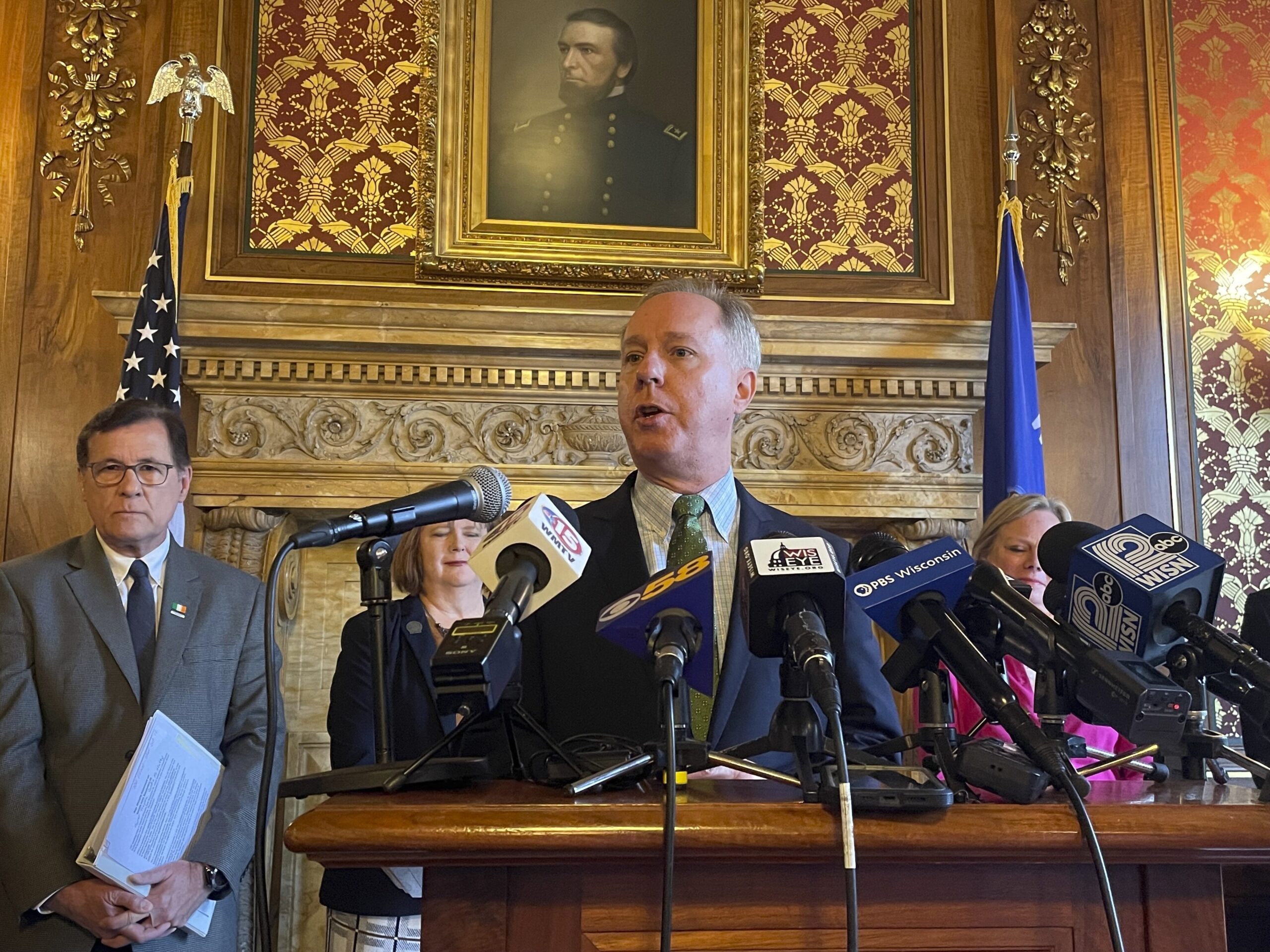
Earlier in the day, the Legislative LGBTQ+ Caucus called on Republicans to remove the bills from the floor.
“Their introduction alone is harmful and dangerous to transgender youth,” they said in a statement. “Recent national surveys have shown that 86% of transgender and nonbinary youth reported negative impacts to their health from the introduction of anti-transgender bills. Nearly 1 in 3 LGBTQ+ young people stated that their mental health was poor ‘always’ or ‘most of the time’ due to anti-LGBTQ+ policies and legislation.”
The legislation faced hours of public testimony at a public hearing last week. Earlier this month, Evers posted on social media that he would “veto any bill that makes Wisconsin a less welcoming, less inclusive, and less safe place” for transgender youth.
All three bills passed 63-35.
The Assembly vote took place as a Senate committee heard public testimony on the medical transition bill.
A trio of bills about transgender youth
The sports bills would require that students in K-12 schools and in the state college and university system play sports on the team that corresponds with their biological sex, as determined by a physician at birth.
The bills would establish separate men’s, women’s and co-ed categories for teams, and explicitly bans biologically male students “from participating on an athletic team or in a sport that is designated for females or women.” It would also allow schools to sue the NCAA or government if they are sanctioned for excluding transgender athletes.
Republican lawmakers on Thursday argued the bills are designed to protect women’s sports and that biological differences between male and female bodies would render the playing field unfair.
“Transgender students are entitled to enjoy all aspects of American education in the same way students of every race, creed, sex, color, national origin, religion do, but they do not belong in spaces where the law has spoken unambiguously and distinct, longstanding protections for women and girls within the field of competitive sports,” said Rep. Barbara Dittrich, R-Oconomowoc, who introduced the bills.
Democrats said the issue is a red herring being used for a broader agenda of discriminating against transgender and nonbinary people.
Rep. Kristina Shelton, D-Green Bay, called the legislation “a manufactured crisis under the guise of supporting girls and women’s sports.”
“Just like it was never about water fountains … today is not about supporting athletics in a meaningful, intentional way,” she added.
The sports bills passed by the Assembly are supported by Wisconsin Family Action and the Wisconsin Catholic Conference. They are opposed by groups like the ACLU of Wisconsin, League of Women Voters of Wisconsin, Wisconsin Council of Churches and associations of public health boards and school boards.
The medical bill would ban certain gender-affirming health care — including hormone therapy and surgeries — for minors. It would cause a medical provider to lose their license if they provided certain medical services to people under 18 for the purpose of “changing the minor’s body to correspond to a sex that is discordant with the minor’s biological sex.”
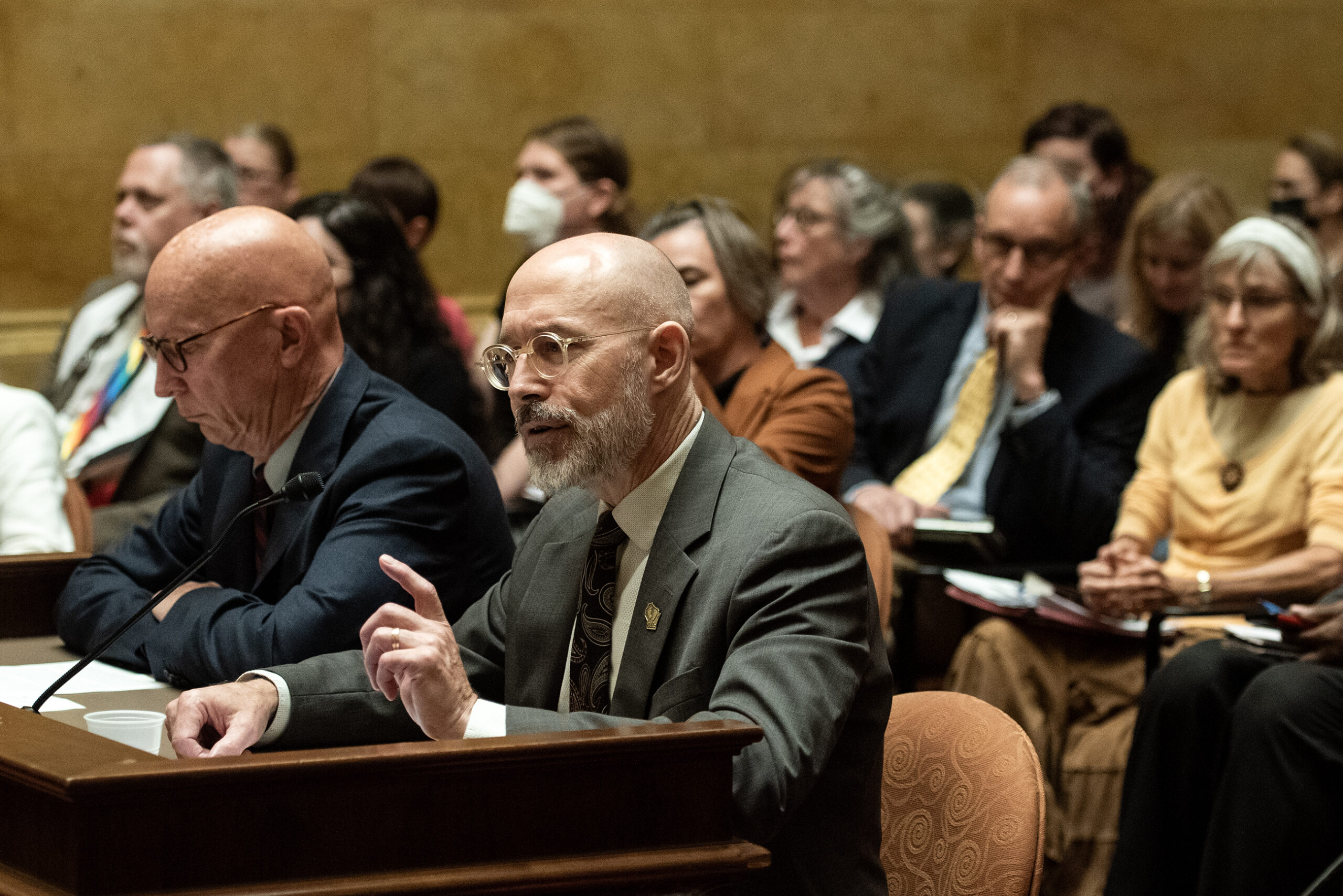
Speaking to reporters before Thursday’s Assembly session, Rep. Scott Allen, R-Waukesha, said the goal of the bill is to slow down some medical treatments for gender dysphoria in youth, such as the use of puberty blockers, that can have long-term effects on developing bodies.
“What this bill does is it grants minors the time for their minds to develop in order to make the right choice for them at the appropriate developmental age,” said Allen. “I want to make clear that this bill does not prohibit social transitioning, and it does not affect adults. It allows minors the chance to hit the pause button before making a significant choice.”
Many major medical organizations, including the American Academy of Pediatrics, the American Academy of Child and Adolescent Psychiatry, the American Medical Association, the American Psychological Association and the American Psychiatric Association offer guidance on age-appropriate care, and argue that such care is medically necessary.
Democrats argued that supporting medical transition in youth benefits their mental health, too.
“It’s not that transgender youth are more prone to suicide because of being transgender,” said Rep. Melissa Ratcliff, D-Cottage Grove, whose son is transgender. “It’s how others attack them and make them feel like less. Like with the introduction of these bills, that’s what makes them more likely to commit suicide, the lack of acceptance.”
Surgeries on minors are rare. The Pediatric and Adolescent Transgender Health Clinic at UW Health does not perform genital surgery on minors and only provides top surgery after extensive evaluation, including mental health evaluation.
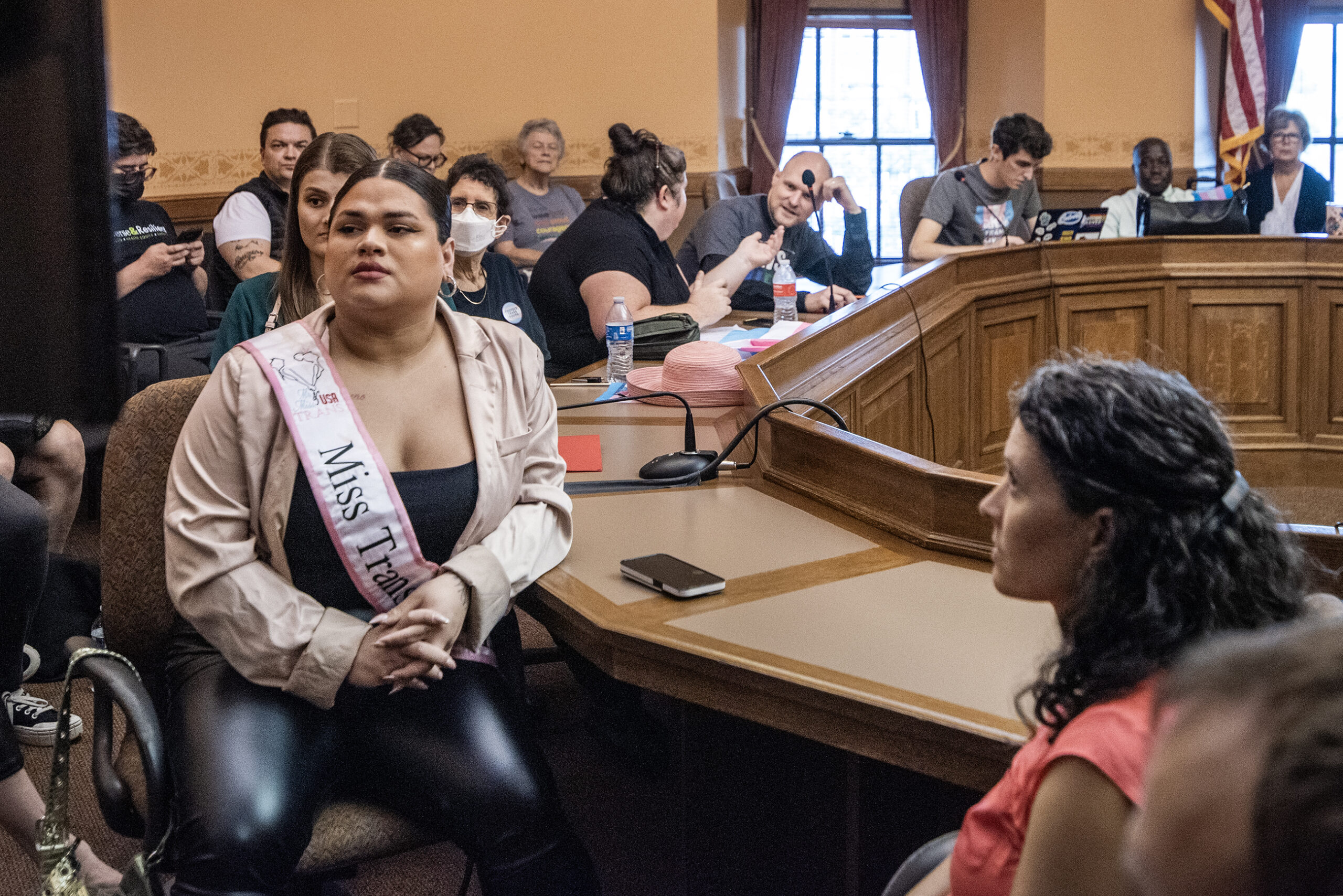
A nationwide pattern
The proposals are part of a pattern in state Legislatures throughout the country. According to the Movement Advancement Project, a progressive think tank, 21 states have approved or implemented bans on gender-affirming care for minors, and 23 have passed bans on transgender participation in sports.
Nationwide, the number of young people seeking gender-affirming care has increased in recent years. Treatment for gender dysphoria can range from social transition — such as using a new name or pronouns, or changing clothing and hairstyles — to hormone replacement therapies, to surgeries.
Similar bills were introduced last session but did not pass both houses of the state Legislature.
Assembly condemns Hamas attack on Israel
Assembly lawmakers on Thursday also approved a bipartisan resolution condemning Hamas’ attacks on Israeli civilians last week and stating, “Wisconsin stands in solidarity with the Israeli people and reaffirms its unwavering commitment to Israel’s sovereignty and security.”
It was passed with 95 votes, with three lawmakers abstaining.
Editor’s note: This story has been updated to reflect the correct name and location of the Pediatric and Adolescent Transgender Health Clinic at UW Health.
Wisconsin Public Radio, © Copyright 2026, Board of Regents of the University of Wisconsin System and Wisconsin Educational Communications Board.

